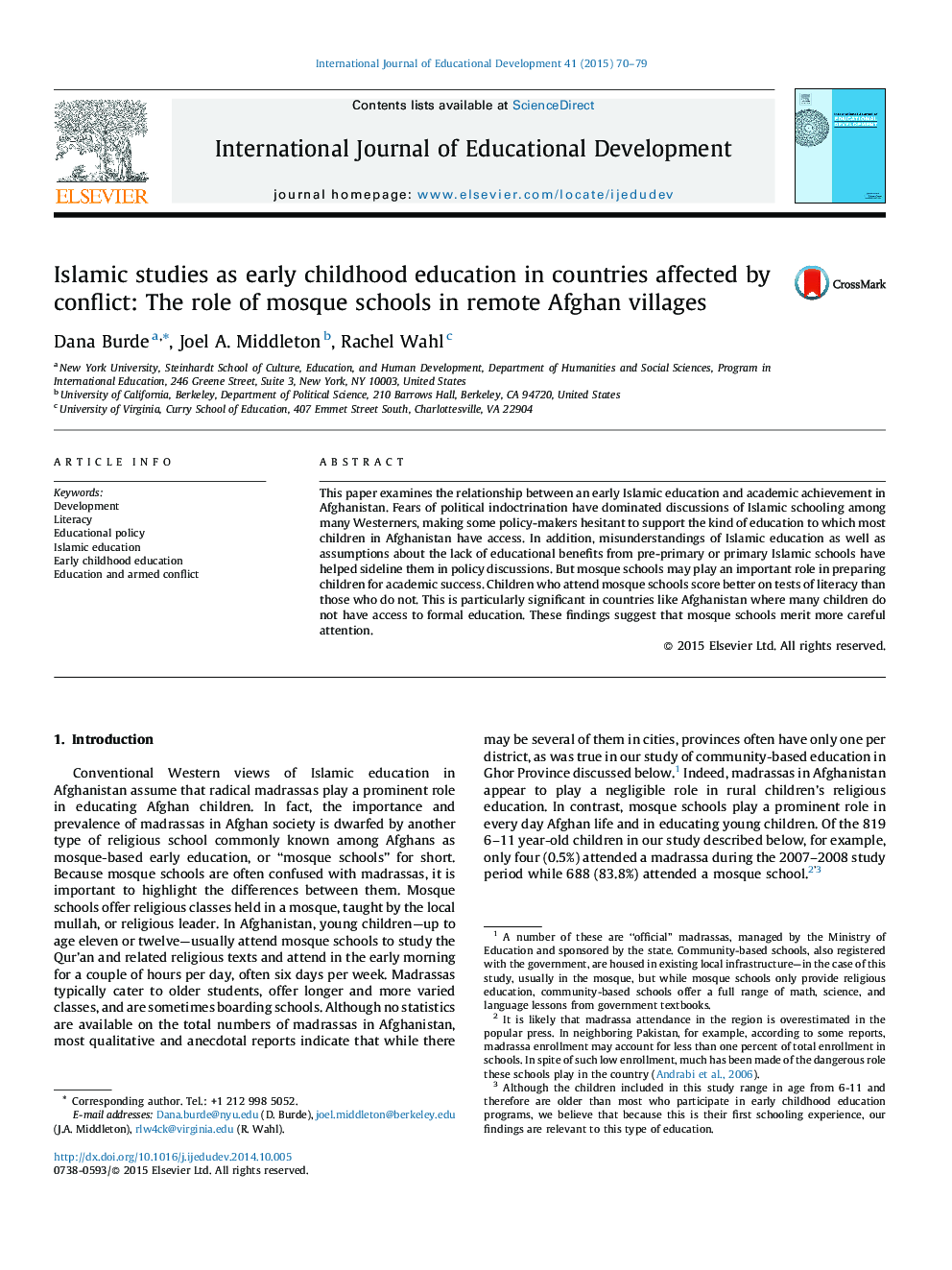| Article ID | Journal | Published Year | Pages | File Type |
|---|---|---|---|---|
| 6841301 | International Journal of Educational Development | 2015 | 10 Pages |
Abstract
This paper examines the relationship between an early Islamic education and academic achievement in Afghanistan. Fears of political indoctrination have dominated discussions of Islamic schooling among many Westerners, making some policy-makers hesitant to support the kind of education to which most children in Afghanistan have access. In addition, misunderstandings of Islamic education as well as assumptions about the lack of educational benefits from pre-primary or primary Islamic schools have helped sideline them in policy discussions. But mosque schools may play an important role in preparing children for academic success. Children who attend mosque schools score better on tests of literacy than those who do not. This is particularly significant in countries like Afghanistan where many children do not have access to formal education. These findings suggest that mosque schools merit more careful attention.
Related Topics
Social Sciences and Humanities
Social Sciences
Development
Authors
Dana Burde, Joel A. Middleton, Rachel Wahl,
